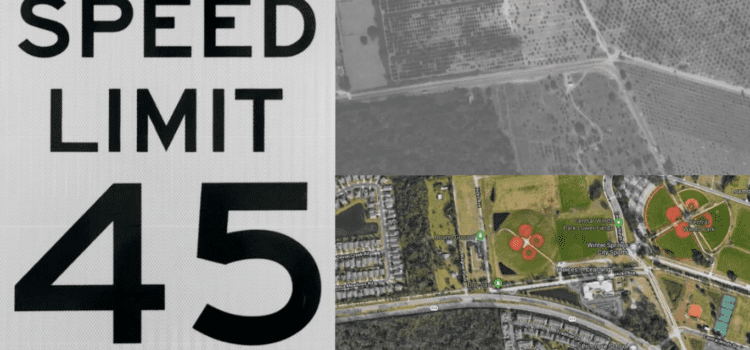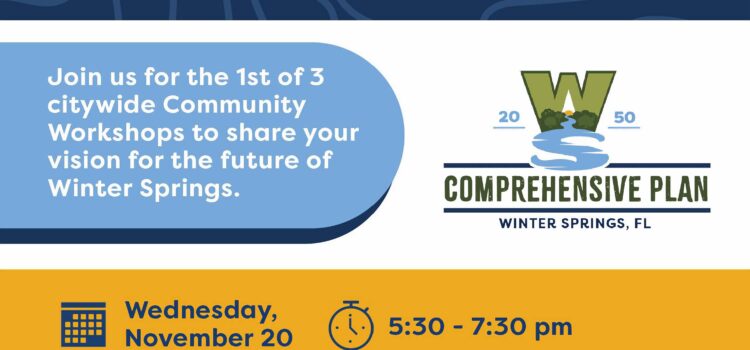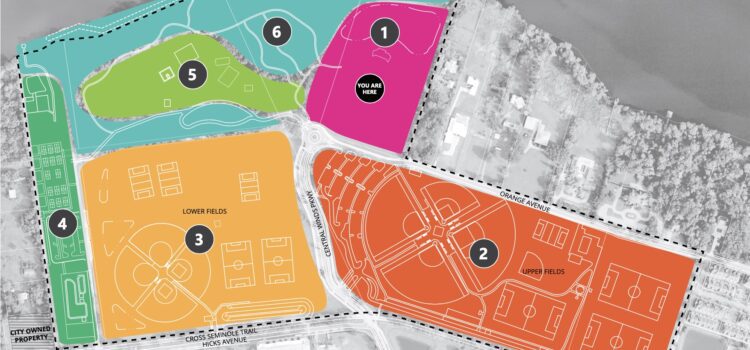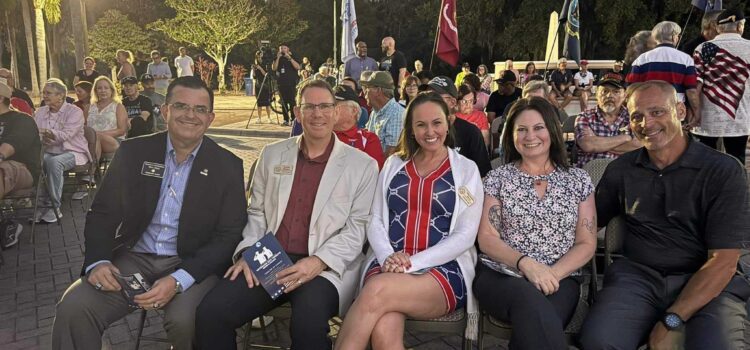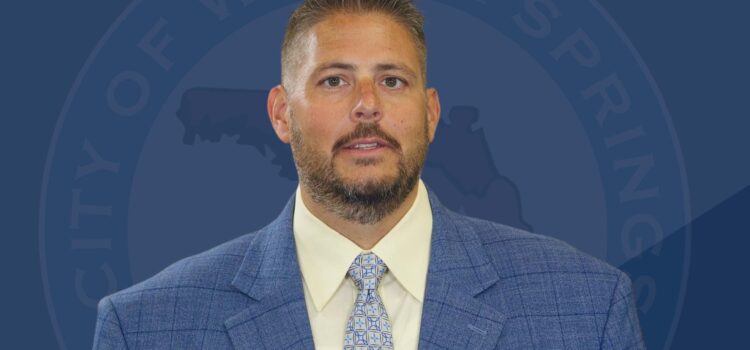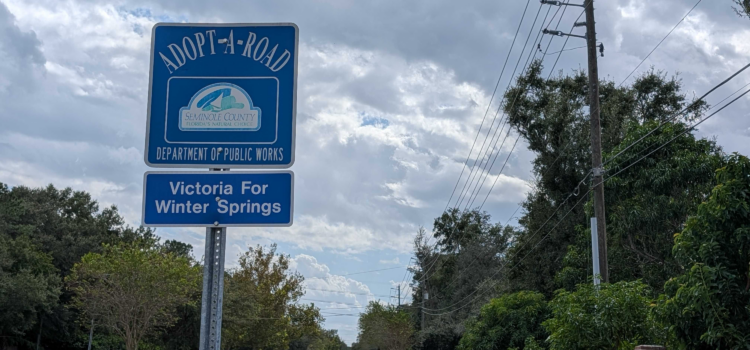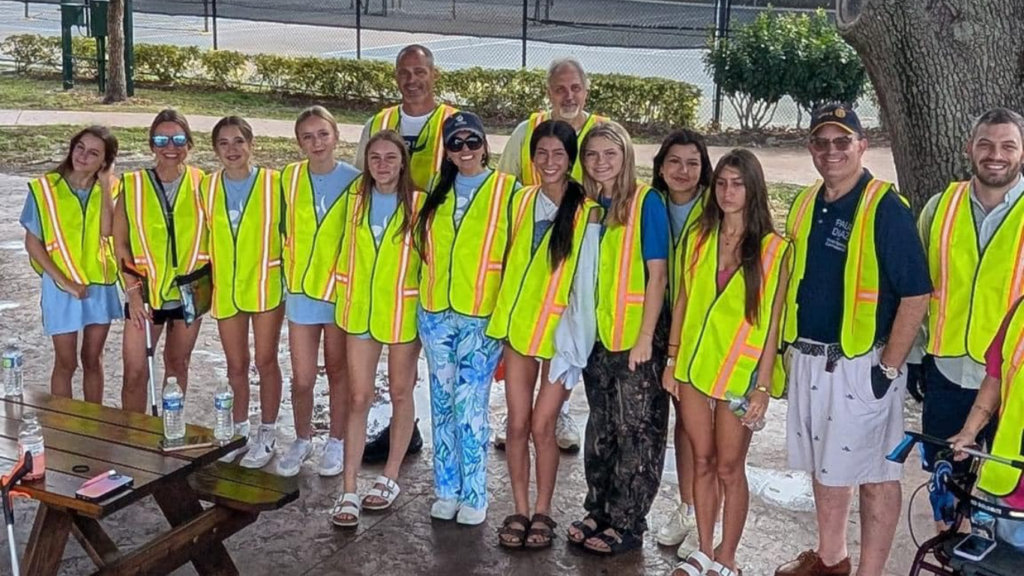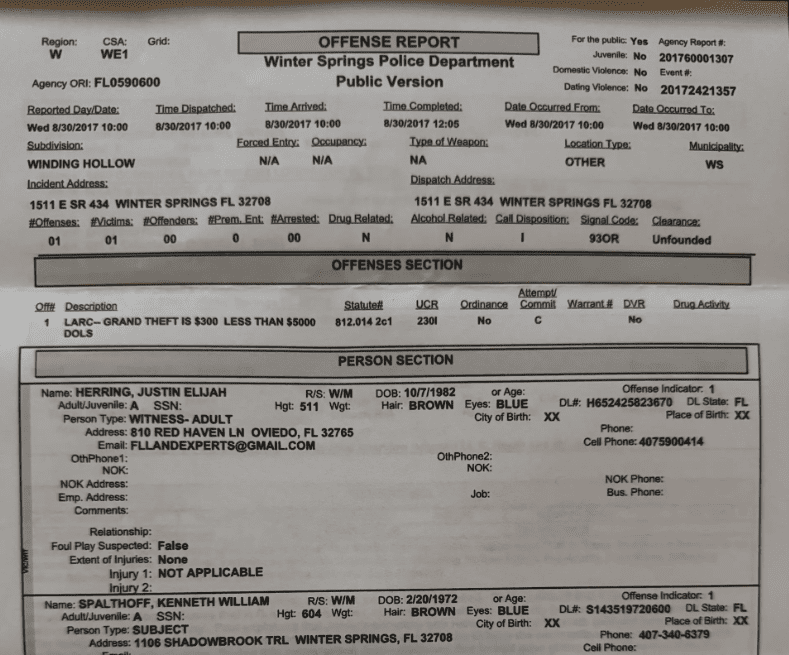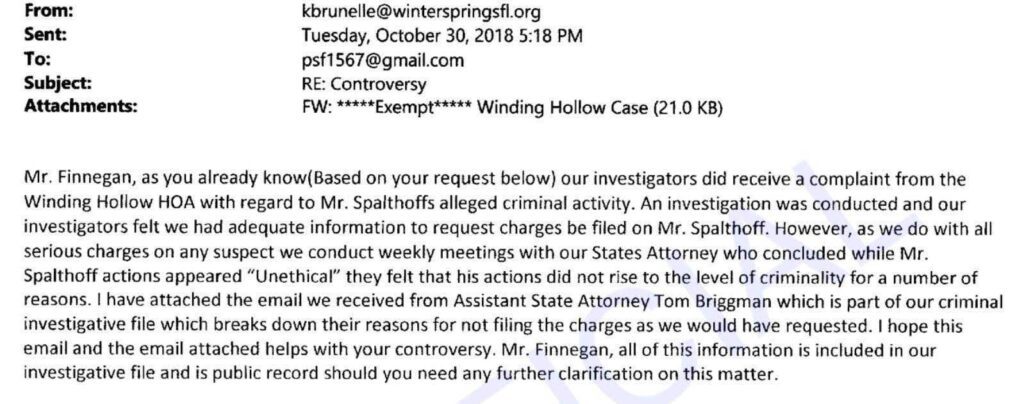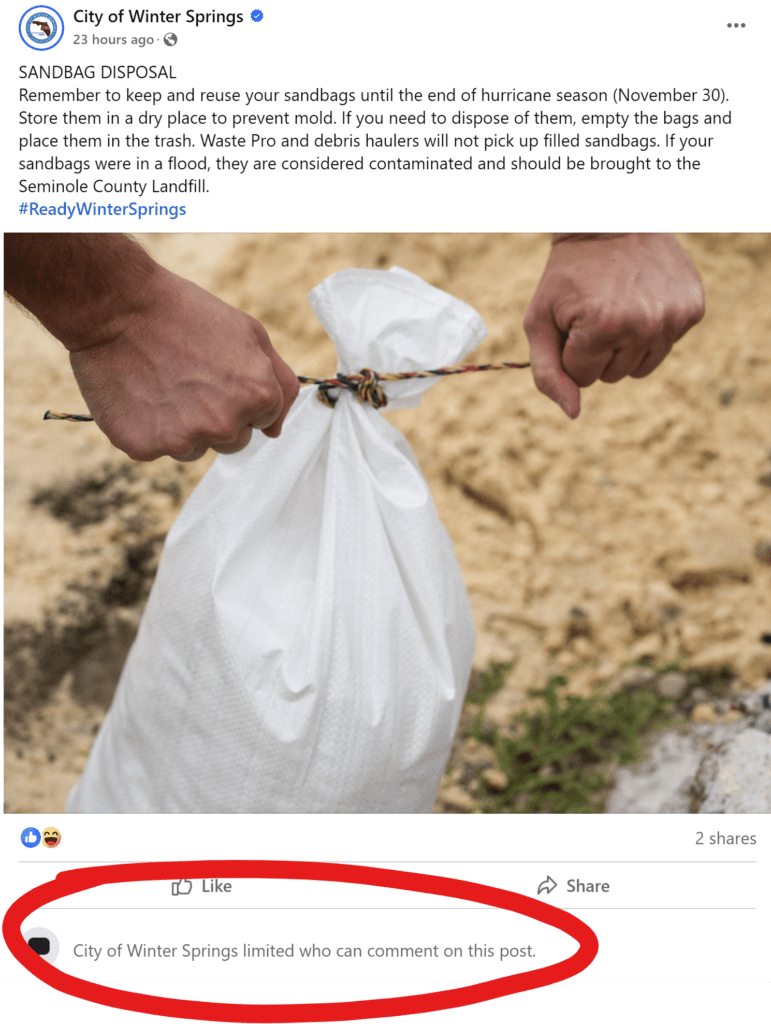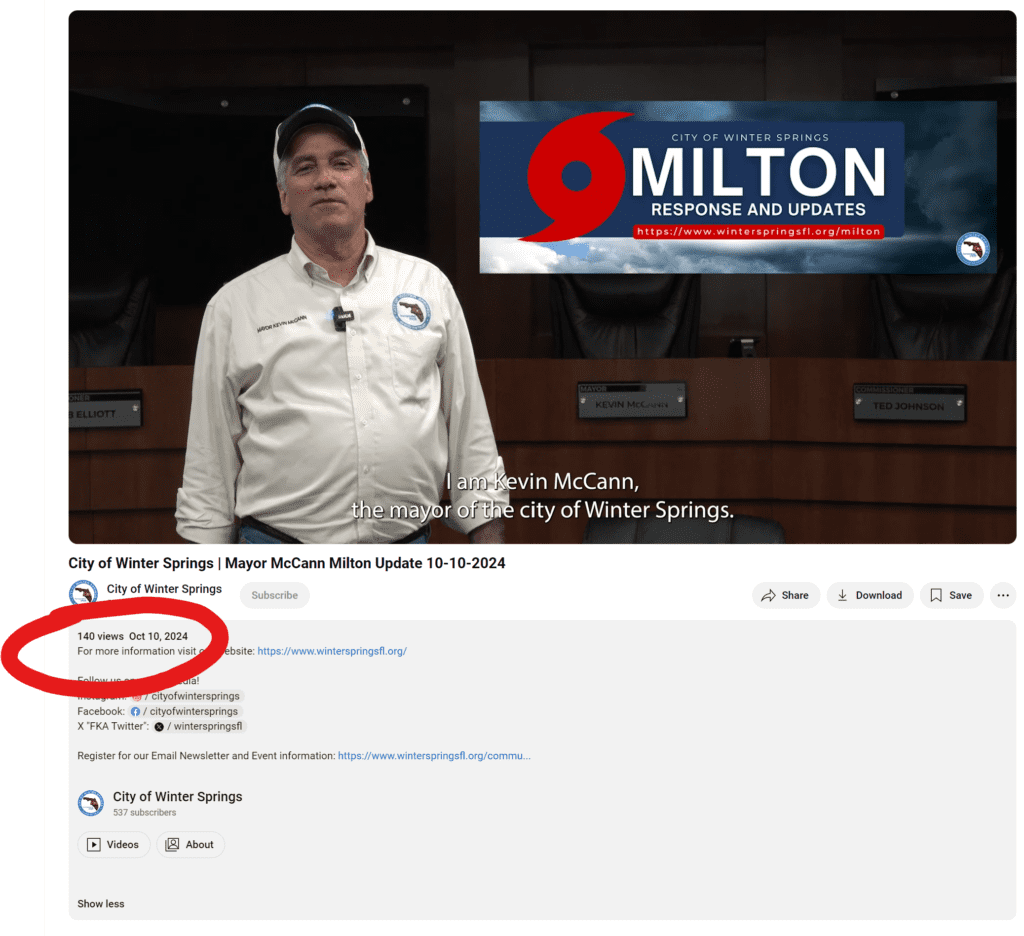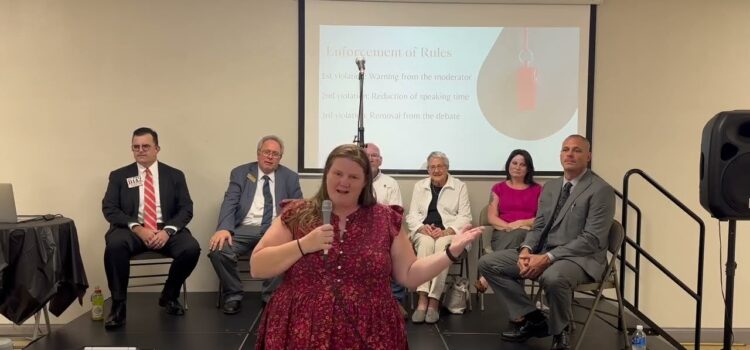The Evolution of State Road 434, Winter Springs, Florida
State Road 434 is the heart of Winter Springs. From its origins as the Sanford-Oviedo Road, a narrow wagon trail carved through Florida’s wilderness after the Civil War, to the bustling four-lane roadway we know today, 434 has witnessed profound transformations.
But with growth comes responsibility. Recently, the speed limit on this roadway was reduced, sparking debates among residents. Some see it as an inconvenience, while others, like longtime resident Leah Weisman, recognize the necessity of prioritizing safety.
As Leah shared on Facebook:
“Sadly, some people feel the right to go fast is more important than anyone’s safety. I am happy for the change… We used to say, how many people have to die before something will be done?”
To understand why reducing the speed limit is crucial, we need to revisit the road’s storied history and its legacy of danger and resilience.
The Legacy of Wagner Curve: A Dangerous Past (Information provided by Leah Wesiman, Resident of Winter Springs)
Thirty years ago, State Road 434 bore little resemblance to the modern, well-lit highway we see today. Heading east from Longwood, it was a two-lane road surrounded by forests and orange groves. A particularly infamous section, Wagner Curve, became known as a “dead man’s curve” due to its sharp angle and treacherous conditions.

This bend, located near today’s Central Winds Park, was responsible for countless accidents. In 1988, a horrific crash involving a truck carrying concrete pipes tragically claimed the life of a father traveling with his family on New Year’s Eve. Public outcry following such tragedies finally led to significant safety improvements. By the mid-1990s, Wagner Curve was softened, and 434 was widened to four lanes, significantly reducing accidents.

Progress Fueled by Safety Concerns
The changes to Wagner Curve weren’t proactive—they were reactive, born out of necessity after lives were lost. While modern infrastructure has made State Road 434 safer, the dangers of speed persist. Winter Springs is no longer the quiet agricultural village it once was. Increased population density and traffic volumes mean that reducing speeds is not about inconvenience; it’s about protecting lives.
Today, areas like the Winding Hollow neighborhood and the busy intersections near Winter Springs High School highlight the importance of cautious driving. Leah Weisman recalls how changes such as the addition of turn lanes and traffic lights came only after years of advocacy:
“The traffic light at Winding Hollow… construction of a turn lane going into Winding Hollow started ten years after the original design… Tragically many changes were only made after deadly accidents.” Construction is pending in 2025/2026 for the much awaited Turn Lane into the Winding Hollow neighborhood, which has 389 homes.
Her words serve as a poignant reminder: we have a duty to ensure history does not repeat itself.
Why the Speed Limit Change Matters
Reducing the speed limit on State Road 434 is a step toward achieving Vision Zero: Zero fatalities on our roadways. High-speed accidents don’t only harm drivers, they also impact families, first responders, and entire communities.
As your District 2 Commissioner, I’ve heard the concerns of residents frustrated by the new limits. But I also know the pain that comes when loved ones are lost because action wasn’t taken in time. Slowing down means fewer collisions, less severe injuries, and, most importantly, lives saved.
Preserving Winter Springs’ Future
State Road 434 has come a long way since its days as a wagon trail and a dangerous two-lane highway. The reduced speed limit is just another chapter in its evolution, a change aimed at protecting the vibrant community Winter Springs has become.
As you drive along 434 today, think about its history and the lives saved by decisions made in the name of safety. Let’s honor those who pushed for change and ensure that our roadways are safe for generations to come.
Together, we can balance progress and preservation, keeping Winter Springs a beautiful, thriving community.
We Want to Hear from You
What are your thoughts on the speed limit change? Share your opinions, stories, or concerns in the comments!
